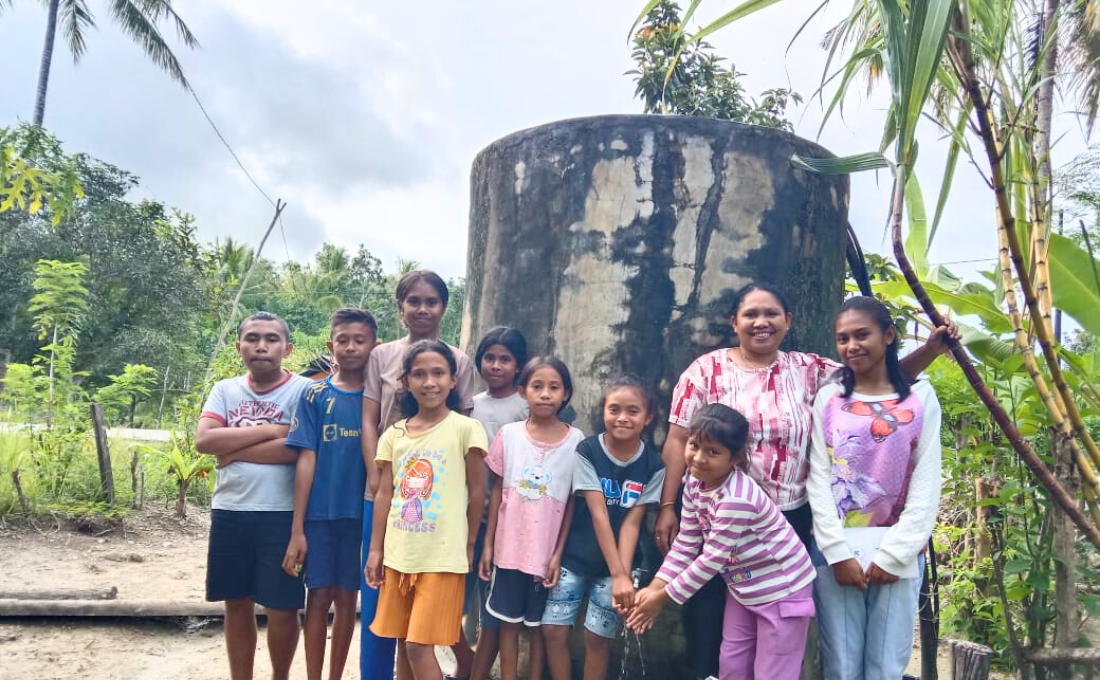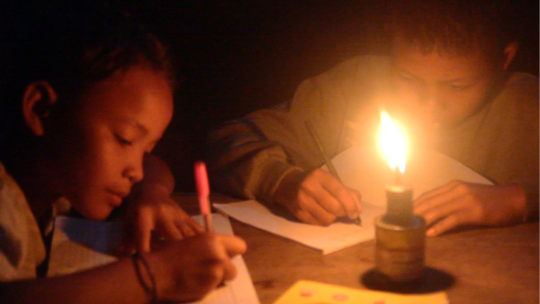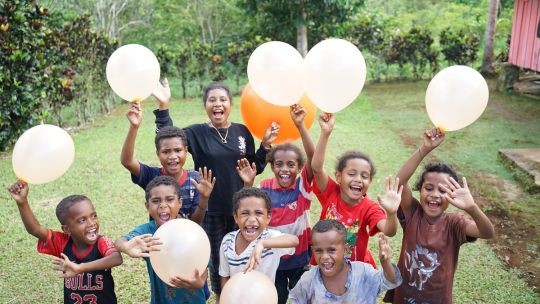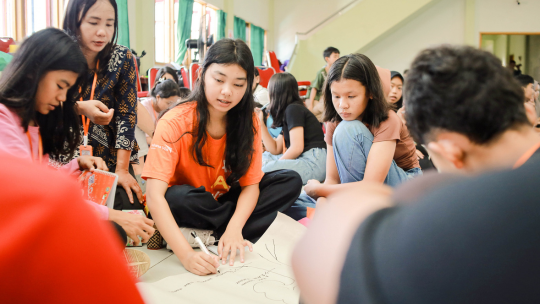Begin with Initiatives, End with Clean Water and Healthy Latrines

Approximately 26 km from the centre of Timor Tengah Selatan Regency, there's a village situated in a highland area with cool air and a fairly dense population. The area surrounding the village is abundant with trees and close to a lake, providing children and residents with sufficient water for most of the village.
Despite having water sources, one hamlet still faces inadequate sanitation. Many residents lack awareness of using healthy latrines, which also impacts children's health. In response, activities such as Community-Led Total Sanitation (STBM) initiatives and WASH Module training for religious leaders have been conducted in the hamlet. These activities are crucial to foster awareness among both the community and religious figures to engage in disseminating clean and healthy living practices.
Reverend Desi, a religious leader actively involved in the STBM initiatives and WASH Module training, has been instrumental in following up on the provision of access to clean water and adequate sanitation, specifically healthy latrines.
The STBM initiatives conducted by WVI alongside GMIT in 2022 bore fruit in 2024. Following the initiatives, Reverend Desi, along with other religious leaders, monitored all households. Before the STBM was introduced, children's health in the village was concerning, with frequent cases of diarrhoea and vomiting among children. This was due to the continued practice of open defecation (BABS) within families.
Reverend Desi's monitoring successfully raised awareness among the community and children to adopt clean and healthy living practices by upgrading to gooseneck latrines, regularly washing hands with soap, and stopping open defecation. Data from the monitoring revealed a significant need for clean water and sanitation in the community, leading Reverend Desi and all religious leaders in the village to actively seek funding sources.
"For me, health is incredibly important, and we can't start from the outside but from within our own homes by practising clean and healthy living. I also encourage religious leaders to play a role in this activity because religious leaders are guides who motivate the community and serve as examples in supporting village development. From the monitoring, we obtained data to use as a basis for seeking donors, and with funding from one organisation, we could build a Clean Water Network (JAB) using the gravity method and healthy latrines for congregants who hadn't yet adopted them. We also prioritised financially disadvantaged households for assistance," explained Reverend Desi.
As a religious figure, Reverend Desi holds a vital role in raising awareness, mobilising, and ensuring the sustainability of this clean water and adequate sanitation facilities. "With access to clean water and proper sanitation fulfilled, children can more easily access clean water, live healthier lives, and save time fetching water, allowing them time to study and play. Most importantly, it protects children from sexual violence that can occur due to the considerable distance of water sources from home. My hope is that children's well-being is met starting from a comfortable home because access to water and adequate sanitation is fulfilled," she concluded.
Author: Christi Sirituka (WASH BP Officer in South Central Timor Regency)
Editor: Mariana Kurniawati (Communication Executive)



